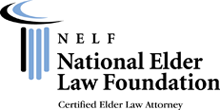- Home
- Legal Services
- NJ Elder Law Services Overview
- Medicaid and Public Benefits Planning
- Medicaid Applications
- Medicaid Appeals
- Special Needs Trusts and Disability Planning
- Guardianship and Fiduciary Services
- Will Contests and Probate Litigation
- Comprehensive Life Care Planning
- Nursing Home Law and Litigation
- Estate Planning and Administration
- VA Compensation and Pension Benefits
- Social Security Disability Appeals
- Family Law Services
- Dispute Resolution Services: Elder Mediation, Collaborative Law, Divorce Mediation Attorney
- About the Firm
- Overview
- Firm Profile
- Attorney Profiles
- Credentials
- Certified Elder Law Attorney
- Top Rated NJ Lawyers
- Highest Rating Available for Legal Ability and Ethical Standards
- In re Keri Lead Counsel
- New Jersey Super Lawyer
- Chair, Elder and Disability Law Section, NJ State Bar
- Founding Member, Council of Advanced Practitioners
- Accredited Professional Mediator
- Collaborative Law Professional
- Academy of Special Need Planners
- Elder Mediation Center of New Jersey
- Union County Probate Early Settlement Panelist
- Social Security Claims Representative
- Member, National Academy of Elder Law Attorneys
- Client Reviews, Testimonials and Professional Recommendations
- Website Disclaimer and Terms of Use
- Publications
- News & Events
- Resources
- Blog
- Contact




